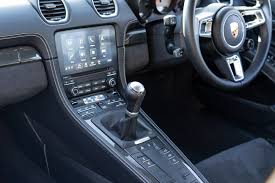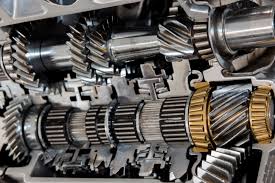Can changing your transmission fluid cause damage?
Transmission fluid is important for lubricating the parts of your transmission and reducing wear and tear caused by friction and heat. While changing your transmission fluid won’t damage the condition of your transmission, if you haven’t been changing it frequently enough, you may discover that your transmission slips. Read on to find out why.
When should transmission fluid be changed?
Every vehicle is different, so it’s no surprise that every car has different requirements for how often transmission fluid should be changed. Check your owner’s manual to find out how often you should change or check your transmission fluid. In most cars, you can check the transmission fluid by finding the transmission dipstick under the hood of your car while the engine is running. It’s usually located behind the oil dipstick. There will be markings on the dipstick indicating if there is enough transmission fluid, or if you need to add more.
To determine if you need to change the fluid, wipe the dipstick on a white paper towel or cloth and observe the color of the transmission fluid. If the fluid is bright pink, your transmission fluid is new and does not need to be changed. If the fluid is a light brown with a hint of pink, your transmission fluid will need to be replaced. If your transmission fluid hasn’t been changed in a long time, it will appear a very dark brown color and may even have metal particles floating in it, indicating the transmission is damaged.

Transmission Flush
The benefits of a flush are self-evident. All the old, dirty fluid is removed and replaced with fresh, high-quality fluid. As a result, your transmission should run cooler and receive maximum protection against wear to clutches, gears, and bearings. You’ll also notice smoother, more consistent shifting since the new fluid will provide more effective frictional properties. Performing a flush also helps to cleanse the transmission. Sludge and other contaminants can accumulate in the fluid due to extreme heat breaking down the fluid. These contaminants then circulate throughout the transmission before lodging in the filter. Before the filter can safely capture the contaminants, however, they run the risk of lodging in the narrow passages inside the valve body, leading to poor shift quality. Performing a flush also allows you to use a flush additive to help clean the transmission and more effectively remove accumulated sludge and other contaminants. Transmission flushes are recommended every 45,000 miles or 3 years in place of a drain and fill or to replace fluid changes altogether.
Many people will argue that a transmission flush is more effective than a drain and refill because old fluid remains in the transmission after the change, contaminating new fluid, thus, diminishing performance. With a flush, all old fluid is removed with a flush machine and then new fluid is added, allowing the transmission to perform at its best. However, the cost of a flush is significantly more than a simple drain and refill. In any case, choosing a fluid flush or a drain and refill is better than not performing any kind of maintenance on your transmission. With some vehicles, a fluid flush or change is irrelevant as they may have a sealed transmission. Refer to your owner’s manual to be sure.

Why Maintain Your Transmission?
Transmission maintenance benefits your vehicle in three ways:
- Prevents Overheating – Over time, particles from within the transmission and metal shavings accumulate in the transmission fluid. As it moves, the transmission as well as the fluid, begins to heat up significantly causing particles to burn and overheat internal components, resulting in system failures.
- Improves Gear Operation – When the transmission begins to overheat, the transmission fluid turns into a thick, gooey sludge, clogging gears making shifting between speeds difficult.
- Improves Fuel Efficiency – When the transmission is functioning optimally, less strain is placed on other mechanical components within the vehicle. By reducing the amount of friction produced by moving an

How to Fix Transmission Slipping
You can solve transmission slipping yourself if it’s simply low fluid, burnt or ineffective fluid, or transmission leaks. This will often require you to either check the fluid, change the fluid, or fix the transmission leak.
On the other hand, problems such replacing or adjusting clutches, replacing or adjusting bands, and replacing gears will require you to dismantle the transmission. These procedures are complicated to explain and will require experience.
How to Prevent Transmission Slipping
To prevent your transmission from slipping, you need to regularly maintain your vehicle. This means that you should check the fluid often for any signs of problems, such as leaking, low, dirty, or burnt fluid. Any of these signs can lead to transmission slipping. We recommend that you have your transmission flushed and a new filter installed at least once every 30,000 miles.
Can a transmission fluid flush fix shifting issues?
In most cases, no. It’s too late. Thinking that a transmission fluid flush will fix shifting issues is like expecting an engine oil change to fix a neglected worn out engine. However, there are a few instances where a transmission fluid flush along with fluid additives like Lucas transmission can fix shifting issues.
When can a transmission fluid flush fix shifting issues?
Old worn out fluid loses prevents clutch discs and steel discs from bonding when under high pressure because the fluid’s friction additives are depleted. Fresh transmission fluid contains new friction enhancing additives, along with seal conditioning additives. If you catch a shifting issue very early, a transmission fluid flush can sometimes fix shifting issues. The fresh fluid helps clutch discs and steel discs bond and hold without slipping. The seal conditioners in the new fluid help soften the clutch piston lip seals so they seal better.

